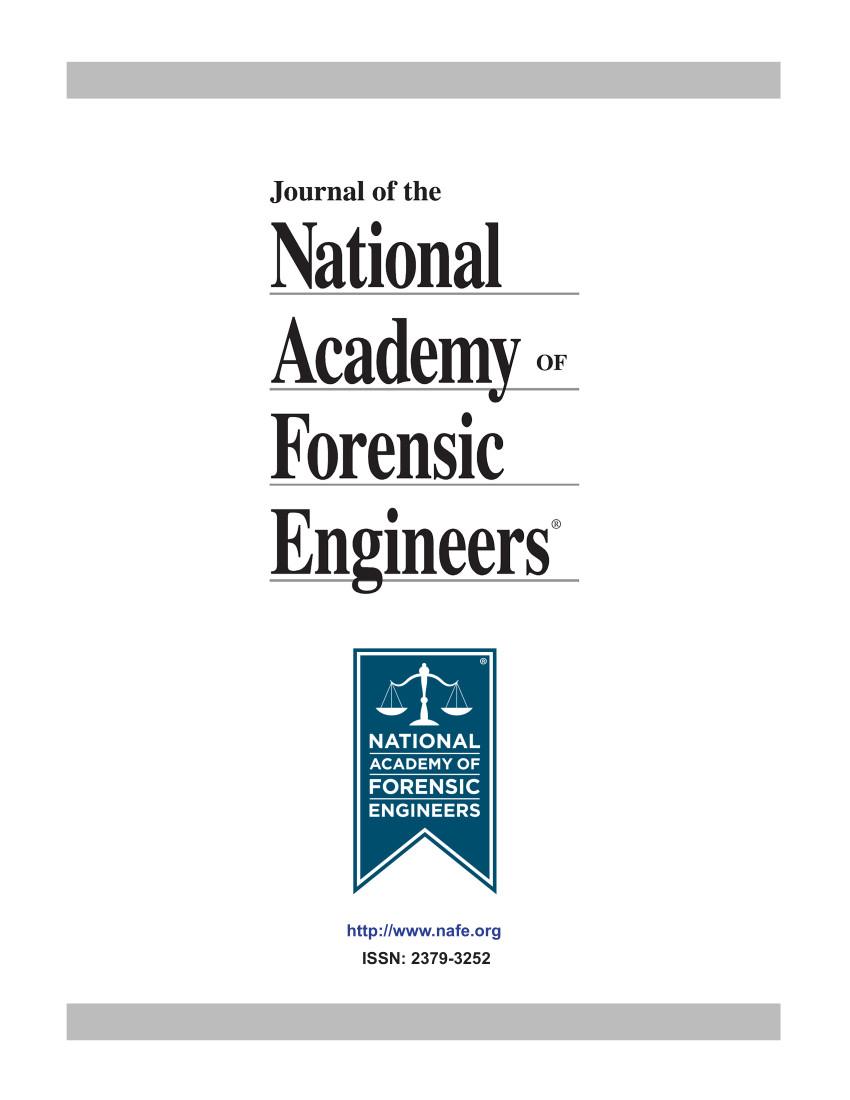The Danger Of Unsubstantiated Assumptions - Indoor Air Quality
DOI:
https://doi.org/10.51501/jotnafe.v14i1.547Keywords:
Indoor air qualityAbstract
This Particular Case Revolved Around An Incident In An Art Department At A Large Television Station. The Plaintiff Contended That Her Exposure To Harmful Chemicals In The Art Department Had Caused Her Serious Brain Damage And Was Suing For A Significant Amount From All Of The Manufacturers Of The Products Used In The Art Department. The Author Represented Just One Of The Manufacturers Of A Product. The Plaintiffs Expert, An Industrial Hygienist, Had Contended That The Plaintiff Had Been Exposed To Considerably Greater Levels Of Toxicity Than Permitted Under The Osha Or Niosh Regulations. He Even Provided Copious Calculations Substantiating His Allegations. However, The Plaintiffs Expert Had Based All Of His Calculations On The Assumption That The Art Department Had Been Typical Office Building Construction And, Therefore, He Assumed In Typical Office Buildings The Outside Air Provided To The Occupied Space Was Approximately Five Cfm Per Person. The Plaintiffs Expert Also Contended That The Air Was Returned And Recirculated. Furthermore, Plaintiffs Expert Contended That The Air Delivery Could Not Be More Than What He Had Assumed Because Air At Greater Than 35 Fpm Velocity Will Blow Papers Off The Desks. All Of His Calculations Were Based On These Critical Assumptions.Published
1997-01-01
How to Cite
Saltzberg, Edward W. 1997. “The Danger Of Unsubstantiated Assumptions - Indoor Air Quality”. Journal of the National Academy of Forensic Engineers 14 (1). https://doi.org/10.51501/jotnafe.v14i1.547.
Issue
Section
Articles
License
Copyright (c) 1997 National Academy of Forensic Engineers

This work is licensed under a Creative Commons Attribution-NoDerivatives 4.0 International License.
All rights © Journal of the National Academy of Forensic Engineers.
Full statement regarding the author's license of copyright to the NAFE is shown on the Copyright section of the Submissions Page.






